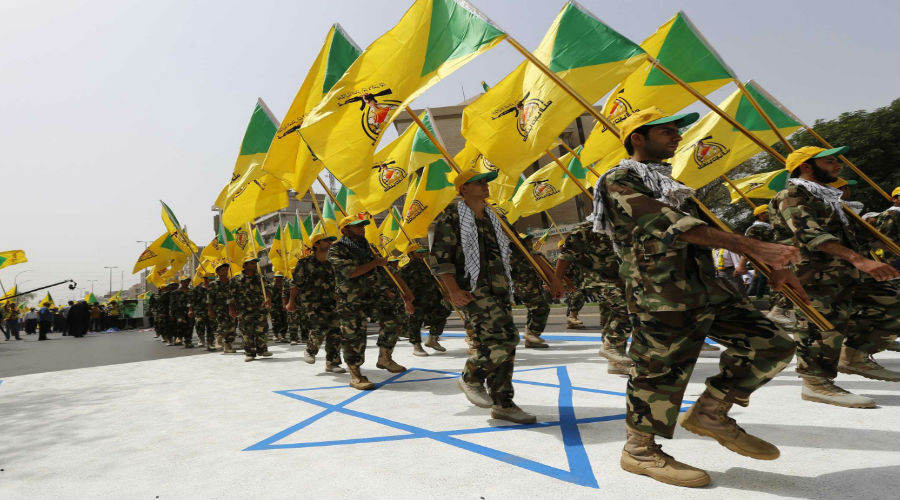As Israel’s Operation Northern Shield continues, with the aim of dismantling the tunnels discovered on the Lebanese border, the Israeli policies mark a remarkable shift in confronting Hezbollah’s threats. The operation comes as part of a series of parallel measures, employing a tactic different from the military escalation scenario, which cannot be completely ruled out in the future with the aim of launching a preemptive strike. However, with no variables yet to enhance such scenario, the Tel Aviv tactic will focus on linking the party’s new threat and escalation with the latter, along with Iran, on the Syrian front, on the belief that the party's new approach stems from the interactions of the equation itself.
On the other hand, Hezbollah has reacted in a similar way, based on calculations that do not lean toward engaging in mutual escalation, albeit threatening of military “surprises” as part of a defensive strategy. Among those “surprises” is deploying the new and unconventional techniques of its missile capabilities, which have been developed by its expertise on the Syrian ground and with the help of Iran.
Apart from these expected messages, Hezbollah has, since the discovery of tunnels, questioned Tel Aviv's account of the issue. Hezbollah's various media platforms have focused on attributing the escalation to the Israeli internal developments, amid the crisis facing Netanyahu's government, after the withdrawal of former Defense Minister Avigdor Lieberman from the government coalition.
Two Main Steps
The gradual announcement of the discovery of four tunnels by the Israeli side coincided with taking two steps by Tel Aviv, which formed the latter’s response to this development, namely:
1- Border measures: This was evident in the Operation Northern Shield, which is not a military operation, but rather an engineering operation aimed primarily at the demolition of tunnels. Consequently, the talk of a military deterrent is not at issue in this context, especially since the current tension will most likely be limited to the “preventive measures”, rather than conducting “preemptive attacks”, at the current stage.
Another indicator is that, although Israel initially claimed that the discovery of these tunnels was the result of years of intelligence effort, this did not correspond to the realities on the ground. This can be attributed to Israel 's lodged complaint at the United Nations in mid-2017 calling for confronting the moves of the Hezbollah-backed Green Without Borders association, according to which it conducts agricultural and environmental activities at the border, which Israel alleges impede the work of the UNIFIL border forces and serve as Hezbollah's observation posts.
2- Active diplomatic moves: Israel began to raise the issue with US and Russian officials, as well as ambassadors from many countries, suggesting that Netanyahu is trying to formally prove Hezbollah's alleged involvement in digging tunnels, and that Israel is facing a new threat that requires a reaction from those countries.
Tel Aviv is also determined to demonstrate that Hezbollah violates resolution 1701, which it is trying to exploit internationally to garner an international support condemning the party and Iran, and pushing for the improvement of the status or role of UNIFIL forces. Such moves were evident in Netanyahu's emphasis during his meeting with Italian Interior Minister, Matteo Salvini, on December 12, stating that “the UN peacekeepers (UNIFIL) led by Rome in southern Lebanon, should put in more efforts to rein in the party.”
Additionally, during Netanyahu's meeting with US Secretary of State, Mike Pompeo on December 4, 2018, the former sought to underline the need to impose more sanctions on Iran and shed light on its missile arsenal, a matter that is gaining special attention in Washington. Yet, he failed, according to international reports, to impose sanctions on Lebanon.
Distribution of Roles
Hezbollah avoided direct engagement with the Israeli campaign, led by Netanyahu. Instead, the party left that task to its media, which focused on questioning the Israeli narrative, promoting the idea that it was an attempt by Netanyahu to cover up for his internal crisis, and reopen channels of communication with Russia following the souring of relations between the two sides, after Israel’s downing of the Russian Ilyushin Il-20 plane on September 17.
However, if the tunnel narrative proves correct, the party will be in a real bind. The discovery of the tunnels meant that it had lost the new threat instrument, its efforts to dig those tunnels had been wasted, and that would put Hezbollah under further international pressure.
Having said that, it seems that Hezbollah's reactions will not go beyond political and media engagement without sliding into military escalation. Its reaction will most likely be confined to issuing threats, as was evident in the remarks of the party's deputy Secretary-General, Naim Qassem, in his interview with the Iranian newspaper Alvefagh on December 9 2018, in which he said that “the Israeli home front including Tel Aviv will be within the range of the ‘resistance’ missiles, and that Hezbollah’s rules of engagement in Lebanon and the rules of deterrence against Israel make it very hard for Israel to initiate a war.”
To conclude, it can be argued that Israel’s escalation over the tunnel issue with Lebanon at this time is a proactive attempt to confront Hezbollah, which has transformed into a different form than the one against which it fought the war in 2006. This is especially true in light of the party’s remarkable participation in the Syrian conflict and the continued military support provided by Iran. These factors will likely shape the potential trajectories of escalation between the two sides in the next period.


